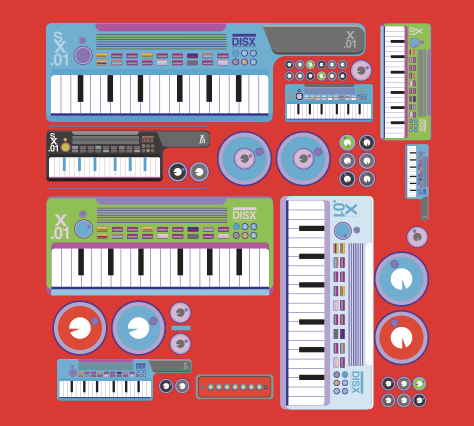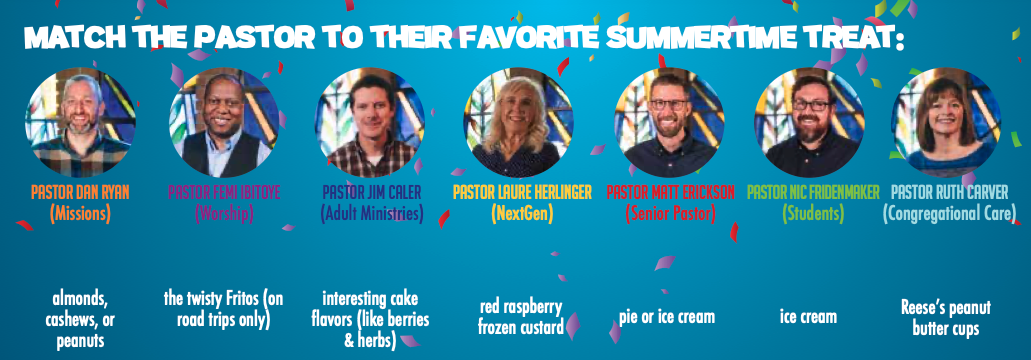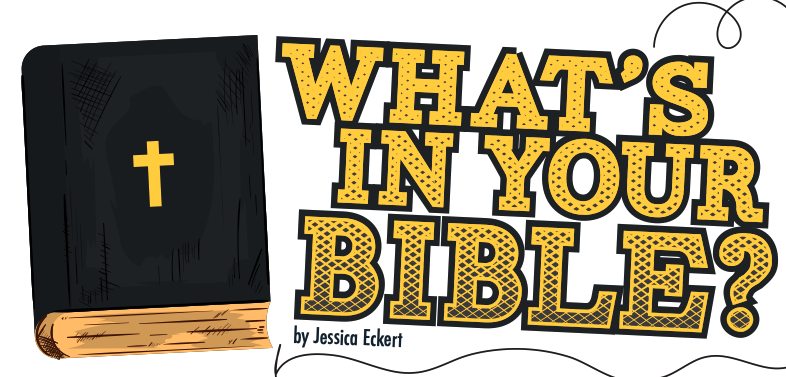There is a beautiful community that sits together in the front row every Sunday. If you attend the 8 o’clock service at Eastbrook Church you may have delightedly witnessed their worship; they are fully engaged and joyful in their expression.
Henrietta, Louis, Regina, and Tony are four of the regulars who sit in the front row at first service. They all describe worshiping on Sunday mornings as an energy they can feel.
“I feel His connection; I feel connection and love,” Regina says—and the rest of the group nod their heads in resounding, unifying agreement. The personal relationship each has with Jesus leads them to this response: worship.
“He is so good and so awesome. I feel joyful when I come to the house of the Lord and when I am around my fellowship family,” Regina adds.
The overwhelming theme from even the briefest of conversations with these Eastbrookers is that gratitude leads to praise. Each of them had something to say on how they are thankful for where God has brought them, or how He has saved them. As we huddled in a cluster immediately following the service, one of them declared: “We dance for the Lord now!”
This evokes the passage from 2 Samuel 6 where King David dances as the Ark of the Covenant is brought triumphantly back to Israel. David is ridiculed for dancing and yet, his response is this: “I was dancing before the LORD…Yes, and I am willing to look even more foolish than this” (2 Samuel 6:14-16, 21-22). David knew what was important—worshiping God—and he knew what was unimportant: what people thought of him. There is a surrendering that happens when we worship. We lay down everything before God and offer Him the praise He is due.
How often do we lose focus of God during worship and make it about us? Maybe we worry about singing off-key, or feeling self-conscious to raise our arms, or maybe our thoughts wander to other things, like what we will eat for lunch. Perhaps we treat worship as a performance or even as a drudging duty, instead of as a response of deep gratitude.
Gratitude naturally pours out into a life of worship. When we focus on who God is, His loving, merciful, compassionate nature, we praise Him. When we think of all He has done, giving His Son Jesus to die for our sins, this motivates us to worship. We can look at the specific things God has done in our own lives, too.
Tony, one of the men who sits in the front row during first service, displays such an emotional response when speaking about what God has done in his life, it is a powerful witness to his heart of gratitude and worship. Part of Tony’s faith testimony is how long God waited for him and pursued him; he did not become a Christian until he was in his fifties. Tony holds so much gratitude for God because of how Jesus transformed his life.
“God’s love is so compelling. It’s so beautiful and thoughtful. It demands a response from us,” Tony says. “God is such a wonderful God, you can’t even praise him adequately because we don’t have the words!”
Even with inadequate words and actions that will never give God all He deserves, our response is to continue to say “yes” to living a life of worship.
There are many ways to praise God. Singing and listening to scripture on Sunday mornings is one facet of worship. Sometimes, we try to separate our physical bodies from the spiritual. As we know through scripture, our
bodies are good and created by God. A physical response in musical worship, such as raising your hands, bowing your head, kneeling, dancing, or whatever you feel compelled to express physically, can signify to God our worship and gratitude.
Whether we are dancing like King David did, joyfully and with freedom, kneeling before the cross in the Worship Hall, or closing our eyes as we sing, a physical response during worship expresses our gratitude and pleases our worthy-to-be-praised God. In Psalm 50:23 the Lord says, “The one who offers thanksgiving as his sacrifice glorifies me”.
What happens when we aren’t feeling grateful? There may be seasons in our life where worship and praise feels harder to do. Something the psalmists understood was that we can lament and cry out to God and still praise Him. In Psalm 13:2, David expressed his anguish (“how long must I have sorrow in my heart all the day?”) and then in verse 5, he offers praise to God (“but I have trusted in your steadfast love; my heart shall rejoice in your salvation”). Within the same prayer we can cry out to God about what is painful or broken in our lives and world and praise God for His gift of salvation, His nature and His character.
The psalms are filled with responses to God as the psalmists pour out their hearts in words and song. We can read both psalms of celebration and psalms of lament, psalms praising God and crying out to Him. The psalms can help us feel less alone, or give us words to express how we are feeling, and they can remind us that the Lord is great and deserving of our worship, always.
Psalm 95:1-3 says, “Oh come, let us sing to the LORD; let us make a joyful noise to the rock of our salvation! Let us come into his presence with thanksgiving; let us make a joyful noise to him with songs of praise! For the LORD is a great God.”
These lyrics from Phil Wickham’s song ‘House of the Lord’ exemplify the heart of the psalmists, knowing all the praise belongs to our God:
“There’s joy in the house of the Lord today
And we won’t be quiet
We shout out Your praise”
Worship is our response to who God is and what God has done, and He is always worthy to be praised. There are many ways we can grow in our worship of God. Perhaps we can take inspiration from a few of the folks in our church who worship with freedom. ■
Recommended Posts

Summer Mixtapes
June 7, 2024

Pastors: They’re Just Like Us!
June 7, 2024

What’s in Your Bible?
June 7, 2024


